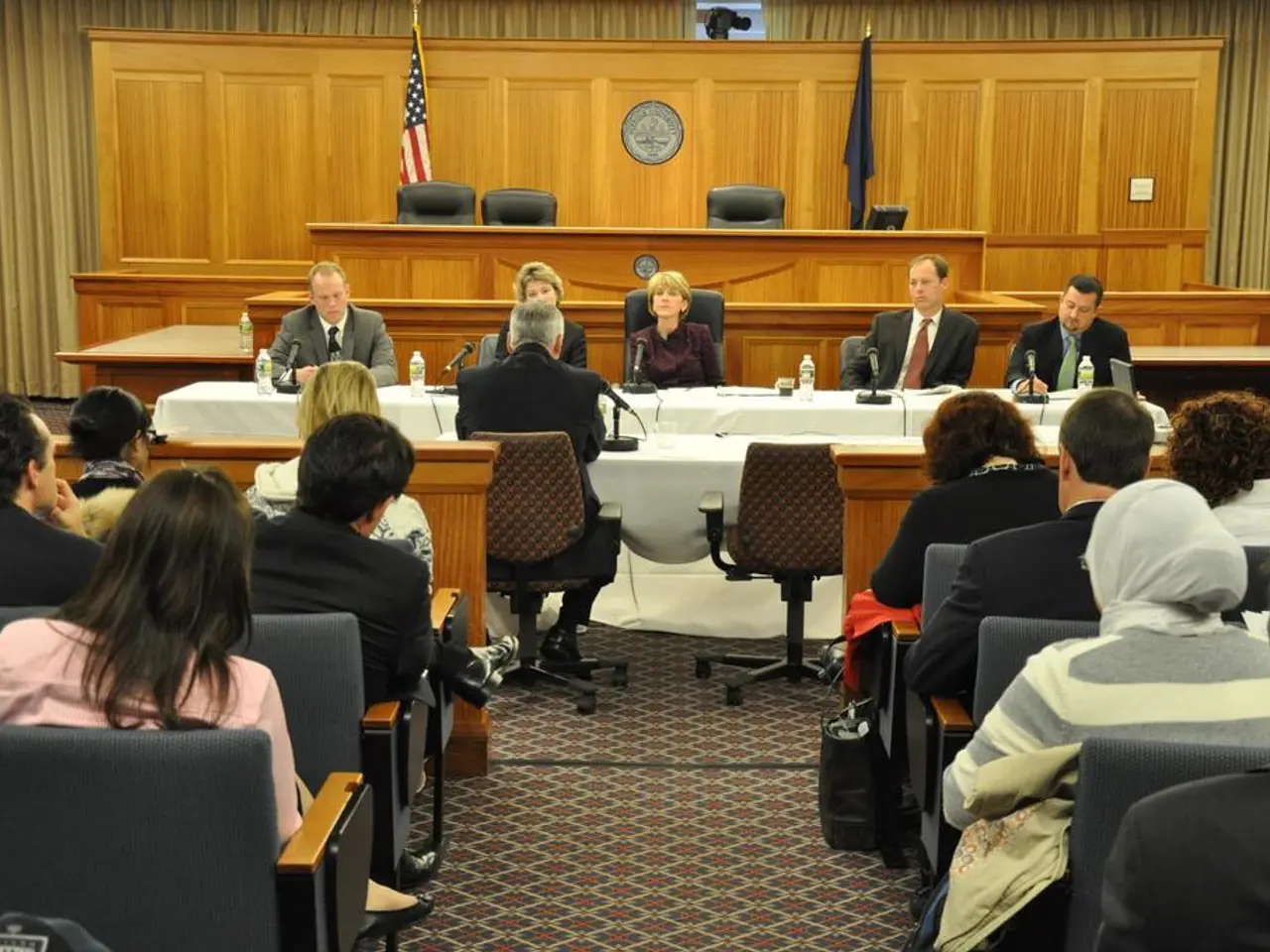Sweden's potential move to revoke permanent residency status for Swiss citizens?
Let's Get Down to Business: What's Really Going On?
Sweden is planning to scrap permanent residency for asylum seekers and long-term EU residents, known as varaktigt bosatt. This move includes Swiss citizens, who have specific agreements with the EU.
Currently, non-EU dwellers living in Sweden for five years without interruptions can apply for varaktigt bosatt, an EU residence permit with at least five years' validity, and automatically renewed upon expiration. This permit also grants holders the ability to work in another EU country. Previously, those in this group were granted permanent residency under Swedish law as well.
Under the new proposal, people registered as varaktigt bosatta would instead receive temporary five-year residence permits, making permanent residency available only through acquiring Swedish citizenship.
The other groups affected are refugees, people in need of alternative protection, quota refugees, individuals granted residence permits due to exceptionally distressing circumstances or an impediment to enforcement, among others. Some of these groups might be eligible for residence permits under other criteria, provided they meet the requisite qualifications.
Why Swiss Citizens are in the Hot Seat
Switzerland is a non-EU member but has bilateral agreements with the EU, such as agreements on freedom of movement and membership in the European Free Trade Association (EFTA), along with Norway, Iceland, and Liechtenstein. These agreements allow Swiss citizens to reside in Sweden with specialized residence permits, but exclude them from receiving work or study permits meant for non-EU citizens. These special permits can be renewed every five years, leading to varaktigt bosatt status, and subsequently permanent residency. However, due to their special status, Swiss citizens can't qualify for other residence permits offering a path to permanent residency, like the EU Blue Card or ICT permit.
By removing the possibility for varaktigt bosatta to obtain permanent residency, Sweden risks blocking the only path Swiss citizens have to permanently reside in Sweden without gaining citizenship.
Questioning the EU Commitments
The union SULF has raised concerns about whether this proposal might breach Sweden's commitments to Switzerland under EU agreements. SULF believes that changing the residency rules solely based on nationality could be detrimental to Swiss citizens, whom they argue would be the only "third country citizens" blocked from permanent residency.
Sweden's intentions are unclear; it's still uncertain whether Swiss citizens were intentionally targeted or unintentionally caught in the tightening of laws focused on asylum seekers. We've reached out to the government for clarification.
A Tightening of the Noose
This proposal is part of a broader reform of Sweden's immigration and integration policies, shifting the focus from asylum-centric immigration to labor immigration, with an emphasis on integration and the return of rejected asylum seekers. The proposal follows a series of stricter enforcement measures, including revoking residence permits on security grounds and motivating voluntary return for rejected asylum seekers.
The ramifications of these changes for Swedish-Swiss relations remain uncertain, but they could potentially jeopardize existing EU commitments between Sweden and Switzerland, causing diplomatic complications and renegotiations.
- The proposed change in Sweden's residency policy for asylum seekers and long-term EU residents, including Swiss citizens, could potentially breach Sweden's commitments to Switzerland under EU agreements, as argued by the union SULF.
- In the context of policy-and-legislation, this tightening of Sweden's immigration and integration policies, including the proposed change for Swiss citizens, could significantly impact general-news topics such as Swiss-Swedish relations and EU commitments.




